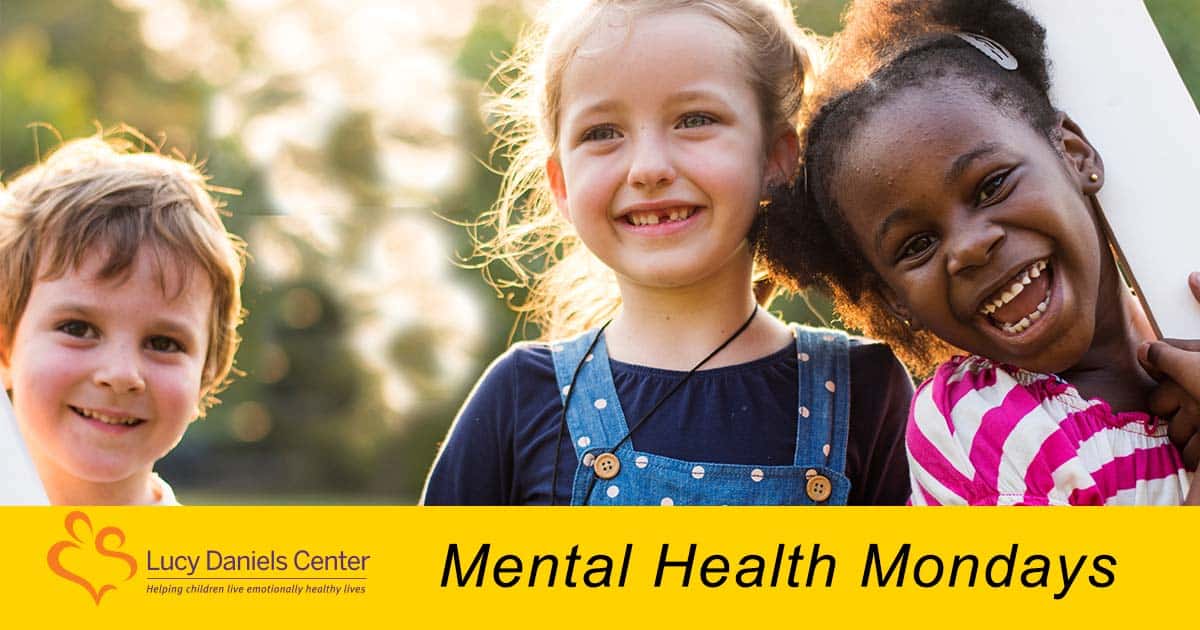Mental Health Mondays
Technology and Early Development
Developments in the area of technology have impacted our way of life in many ways. As mobile technology is more and more an integral part of our lives, the question of how much time children spend watching or playing on devices has become a discussion among many parents. This week, we will highlight some areas of development that can be affected by the misuse – or overuse – of screen time, providing parents with some considerations when deciding how and when it is appropriate and beneficial to their children to fill their time with activities other than screen time.
Time to Reflect
A child’s capacity to reflect develops over time with the help and guidance of adults. Reunions after school or other times of separation are perhaps the most important time of day for a child to reconnect with parents. In the reunion, reflection on the ups and downs of the day provide a child with opportunities to develop a capacity to retell a story or events, express feelings about experiences, and share important or meaningful information with parents. While it may seem that a child prefers to watch a show or play on a device in the car, the post-school commute is a valuable opportunity and a natural space for parents and children to think and talk together about their time apart from each other. (In a similar way, the ride to school offers a chance for children to mentally prepare for their day, an opportunity often lost when distracted by screen entertainment.)
Time to Ponder
Developing a capacity to wait without the external stimulation of mobile devices is becoming something that has to be consciously built into the daily routine since mobile devices are so readily available now. While it is easier to fill wait times with a screen, there are long-term benefits to encouraging a child to fill his or her time waiting with other mind-stretching activities. Consider adding guessing games such as Twenty Questions or I Spy to the periods of the day that involve some form of waiting (waiting rooms or waiting in line, while making dinner, while the bath is filling, etc.).
Time to Work through and Resolve Conflicts
The use of the television, tablets, and mobile phones has, in recent years, been used to replace many unwanted or undesirable behaviors with a quick and easy distraction. Some parents find that allowing their child to play on a device is a soothing activity that either diverts from or quickly settles an upset or tantrum. While this may be a useful distraction in the moment, children benefit in the long run from help with understanding the circumstances that lead to behavioral disruptions and gaining and maintaining control over their behaviors and impulses independently.
Time for Open-Ended Play
Open-ended and creative play, both alone and with peers, is as important in early childhood as exposure to books and other learning experiences. Outdoor and pretend play should be a part of a young child’s daily activities and provides developmental and cognitive opportunities that screen play does not.
Impact on Social, Emotional, and Academic Development
The capacities to reflect, ponder, resolve conflicts, and play all have a role in a child’s development. Making a distinction as to whether a child is seeking entertainment or distraction can be helpful in determining if and when it is an appropriate use of a child’s time and attention. Carving out time to preserve important developmental experiences will help keep a balance between advancing technology and the experiences in early childhood that help shape a mind to be independent, resourceful, and resilient.
Lucy Daniels School is an emotionally safe and supportive learning environment for children preschool-5th grade. Lucy Daniels School provides an alternative choice in our therapeutic school for children who struggle emotionally and academically in a mainstream school environment. At the Lucy Daniels School, each child’s education and therapeutic program is carefully tailored to his or her needs and strengths. Parents meet regularly with a parent guidance counselor. This collaborative approach helps children progress socially and academically to become successful and competent learners.

